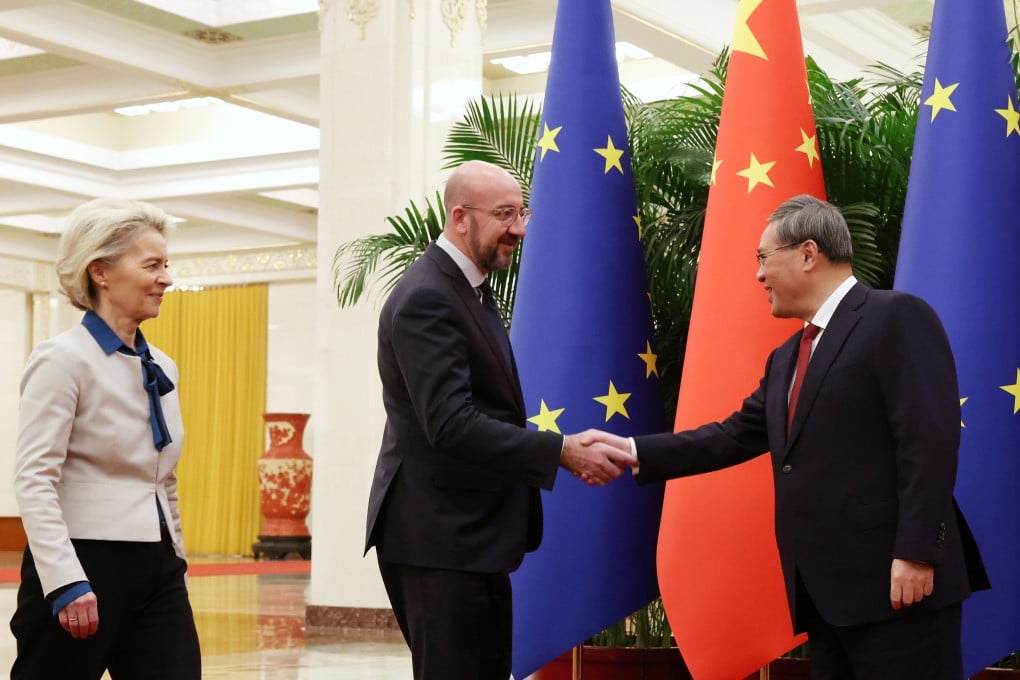Advertisement
The View | How China and EU can transcend zero-sum mindsets and create a better world
- There are vast differences between China and the European Union despite recent warm rhetoric, but these can be overcome with greater cooperation
- Beijing can help rebuild trust by addressing Brussels’ concerns over exports to Russia, improving market access and working together on shared issues in Africa
Reading Time:4 minutes
Why you can trust SCMP
1

Given the low expectations, the EU-China summit that concluded last week could be deemed a success. The European Union was able to air its key concerns directly with China’s top leadership, who appear to have listened attentively.
Before and during the summit, Beijing offered warm words about EU-China cooperation. There are wide differences lurking below such rhetoric, though. While the summit probably bought China some time, the long-term future of relations will be shaped by the concrete action Beijing chooses to take.
Human rights and a host of other issues have derailed ratification of the EU-China Investment Agreement, and Russia’s invasion of Ukraine precipitated a further deterioration in EU-China relations. As long as the fighting continues in Ukraine, China acting as a lifeline for Russia will be viewed disapprovingly in Europe.
Framing the EU’s stance against Russia in moralistic terms risks blinding many in Europe to the geopolitical and economic logic that China needs Russia in its great power rivalry with the United States. In managing its delicate triangular relationships with Brussels and Moscow, Beijing could halt further exports of dual-use technologies to Russia – including by Russian companies based in China – without admitting any fault, as a way to start rebuilding trust with Europe.
The larger issue is how to fix the EU’s trade deficit with China, which approached €400 billion (US$430.8 billion) last year but is expected to shrink this year. While EU exports to China have been growing gradually, China’s exports to the EU have expanded drastically in the past few years.
Beneath the expected rhetoric, with each side blaming the other, the underlying causes of the EU’s trade deficit are complex and manifold. For instance, the sharp rise in energy prices in Europe after the outbreak of the war in Ukraine made some European industries uncompetitive for a time.
Advertisement
